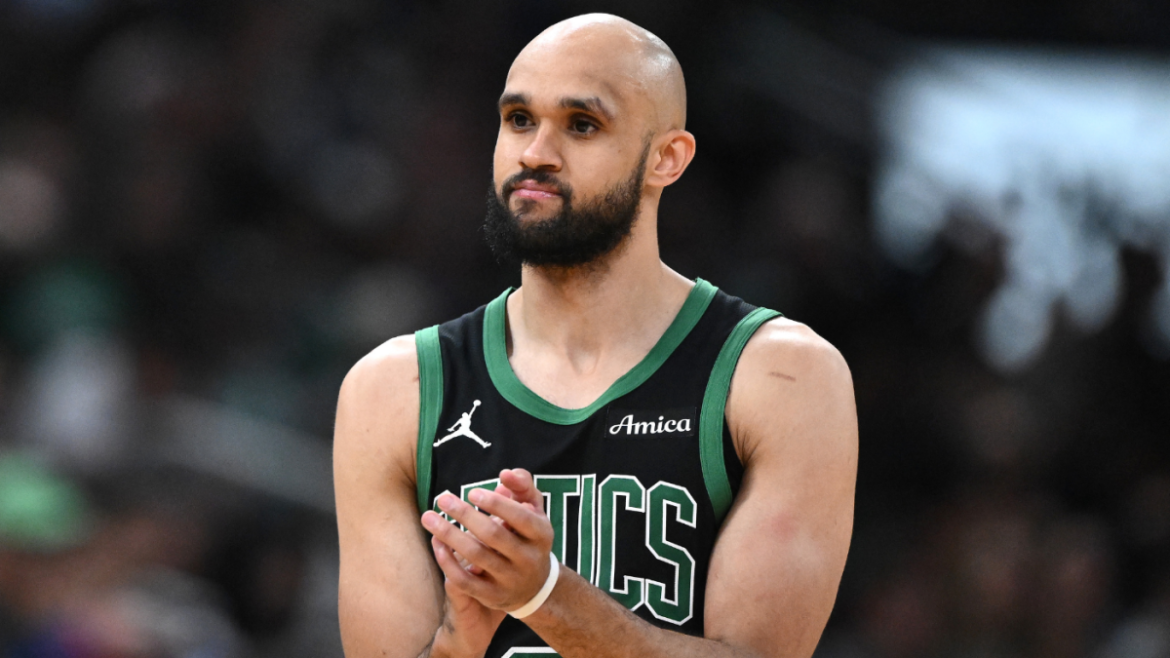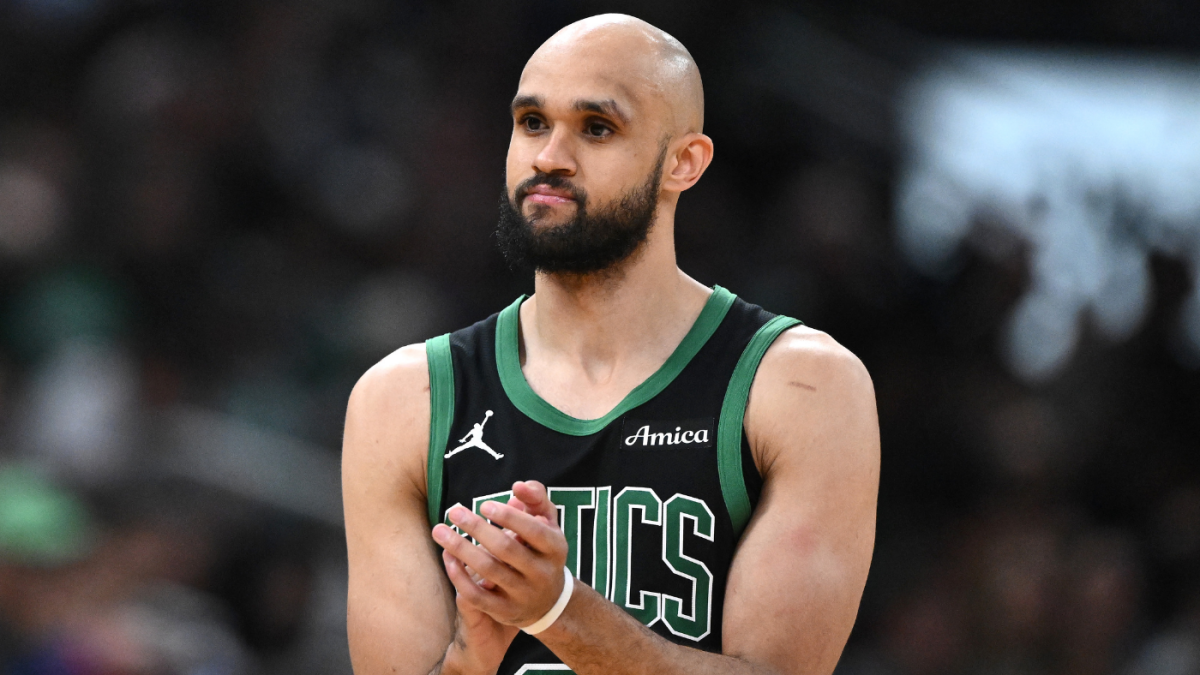In the high-stakes world of the NBA playoffs, few rivalries are as compelling as the Boston Celtics versus the New York Knicks. Their recent encounters exemplify intense competition, resilience, and the unpredictability that defines postseason basketball. Amidst the intensity, the Celtics face unprecedented challenges with the absence of their superstar Jayson Tatum, whose injury has reshaped the series’ dynamics. Exploring this series reveals themes of strategic adaptation, resilience, individual heroics, and the quest for legacy. This report delves into the critical developments, key players stepping up, and the broader implications for both teams.
The Impact of Jayson Tatum’s Absence: A Shift in Celtics’ Strategy
Jayson Tatum’s injury, which required surgery for his Achilles’ tendon, marks a pivotal turning point for the Boston Celtics. Once considered the linchpin of their offense and a cornerstone for playoff success, his absence introduces significant tactical adjustments. Despite this, historical data from this season illustrates that the Celtics have displayed resilience, maintaining a commendable record of 9-2 without Tatum, including holding their own against playoff-caliber opponents (3-2), which underscores their depth and adaptability.
Without Tatum, Boston’s offensive and defensive schemes have had to pivot significantly. The team’s reliance on their supporting cast becomes starkly evident in their recent performances. Derrick White has emerged as an offensive catalyst, stepping into a leadership role with notable contributions—scoring moments that have kept the Celtics competitive. His leadership, combined with efforts from role players like Luke Kornet, who nearly achieved a triple-double in Game 5, exemplifies the team’s depth.
The series’ outcome thus far demonstrates that while winning without a star is challenging, it’s not impossible. The Celtics’ ability to stay competitive hinges on collective effort, strategic adjustments, and capitalizing on their bench strength. Such resilience highlights a broader truth in the NBA: success often depends on versatility and mental toughness, especially when faced with unforeseen adversities.
The Strategic Dynamics of the Series: Turning Points and Momentum
The series has been characterized by dramatic swings, with the Knicks imposing their offensive prowess, particularly through Jalen Brunson, who has been a standout performer. Brunson’s leadership, exemplified by his 39-point performance in Game 4, underscores how individual brilliance can elevate team performance in high-pressure scenarios. His clutch plays have been instrumental in seizing opportunities and tilting the series momentum in New York’s favor.
Conversely, Boston’s recent resurgence in Game 5, where they routed the Knicks 127-102, showcases the importance of responding to adversity with resilience. The victory was bolstered by key contributions from Derrick White and Luke Kornet, who stepped up remarkably in Tatum’s absence. This game underscored how the Celtics could capitalize on sit-back, collective effort to keep their season alive. Notably, the large point differential—outscoring the Knicks by 37 during the period Kristaps Porzingis was off the floor—demonstrates the significant impact individual players can have in pivotal moments.
The series also reveals the significance of game-to-game adjustments and psychological resilience. While the Knicks led the series 3-1 at one point, the Celtics’ ability to rally demonstrates the high stakes and shifting tides characteristic of playoff basketball. The series’ progression highlights that in the postseason, momentum is fragile and must be constantly safeguarded through execution, focus, and team chemistry.
Key Players Elevate with Heroic Performances and Strategic Contributions
Jalen Brunson’s heroics for the Knicks have been a defining aspect of their offensive push, especially noted during Game 4 and Game 5. His leadership and clutch scoring—39 points in Game 4—embody the mentality required to succeed under playoff pressure. Brunson’s ability to be both scorer and facilitator makes him a central figure in the series’ narrative.
On the Celtics’ side, Derrick White’s emergence has been transformational. In Game 5, he scored 30 points, providing crucial offensive punch and defensive effort. His ability to step in seamlessly during Tatum’s absence has proven invaluable. Similarly, Luke Kornet’s near triple-double exemplifies the significance of bench players making high-impact contributions when the team’s star is sidelined.
Additionally, Tatum’s own scoring prowess before his injury, exemplified by a 37-point performance in an earlier game, demonstrates his capacity to catalyze Boston’s offense. His injury, however, shifted the spotlight onto supporting players. Jaylen Brown, who has been battling injuries, remains a vital contributor, though his availability and performance are uncertain. The Celtics have relied heavily on role players and strategic execution to stay competitive, illustrating the importance of a cohesive team effort in deep playoff runs.
Resilience and the Quest for Series Redemption
The current series narrative is a testament to resilience, a hallmark of playoff basketball. Trailing 3-1, the Celtics faced elimination—an uphill climb that demands extraordinary effort and strategic ingenuity. Historically, only 14 teams have rallied from a 3-1 deficit, emphasizing how challenging this feat is. The Celtics, however, demonstrated their resilience with an emphatic win in Game 5, signaling their determination not to be written off.
This comeback effort depends heavily on collective resilience, mental toughness, and strategic adjustments. For the Celtics, the challenge is compounded by Tatum’s injury—an absence that tests their depth and cohesion. The team’s response thus far illustrates how adversity can forge stronger, more unified teams. The resilience on display highlights the unpredictable nature of the postseason and the human drama that captivates fans.
The series also raises questions about momentum, fatigue, and psychological endurance. The Knicks, buoyed by Brunson’s brilliance and increased confidence, aim to close out the series at home. Conversely, Boston’s effort to stave off elimination involves high-stakes execution, strategic flexibility, and a refusal to surrender.
Broader Implications: A Testament to Team Depth and Mental Toughness
The series between the Celtics and Knicks serves as a microcosm of what makes the NBA playoffs uniquely compelling—bright spots of individual brilliance, team resilience, tactical evolution, and the relentless pursuit of victory despite setbacks. The Celtics’ ability to stay afloat without Tatum underscores the importance of team depth and versatility. Their recent performances exhibit that success is often rooted in collective effort, supporting the stars, and adapting strategies to unforeseen circumstances.
For the Knicks, the series validates the impact of star-level performances, exemplified by Brunson’s heroics, and the importance of capitalizing on opportunities when opponents are vulnerable. Their tactical execution, combined with the mental resilience to capitalize on momentum shifts, has positioned them favorably in the series.
The broader lesson reaffirms that in postseason basketball, individual talent must dovetail with strategic discipline and psychological resilience. Teams that can adapt, elevate role players, and withstand adversity are those most likely to advance.
Concluding Reflections: The Road Ahead and the Essence of Playoff Drama
The Celtics versus Knicks series epitomizes the unpredictable thrill of the NBA playoffs. The Celtics’ resilience in the face of adversity, exemplified by their recent victories and strategic adjustments without Tatum, embodies the spirit of perseverance that defines postseason sport. Meanwhile, the Knicks’ reliance on star performances and effective team play highlights the importance of star power and tactical execution.
As the series moves into its decisive stages, the stakes are clear: resilience, adaptability, and collective effort will determine which team advances toward the Eastern Conference Finals. For fans and observers alike, this series offers a vivid reminder of basketball’s capacity for drama, heroism, and redemption. The outcome remains uncertain, but the narrative exemplifies why the NBA playoffs captivate audiences with tales of human endurance, strategic ingenuity, and unwavering pursuit of glory.
In the grand tapestry of sports storytelling, this series adds a fresh chapter—where resilience meets brilliance, and every game rewrites the definition of what it means to fight against the odds. Whether the Celtics complete their remarkable comeback or the Knicks continue their march, the series underscores that true victory lies not just in winning but in the relentless pursuit itself.





